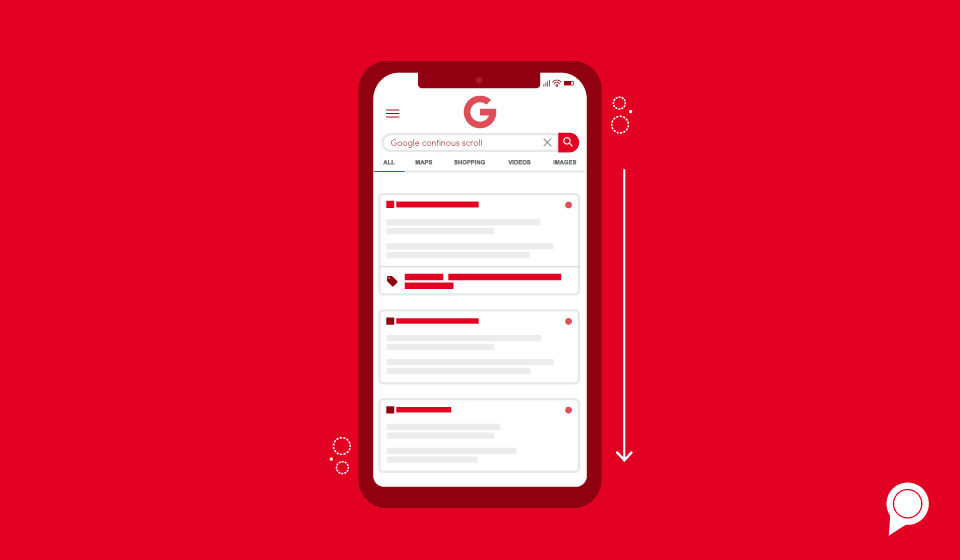

At the end of June 2024, Google announced that it would be turning off continuous scroll in search for both desktop and mobile within the next month.
Continuous scroll (or infinite scroll) was originally rolled out for mobile search in October 2021 and desktop in December 2022 as a user-based test, with Google concluding that automatically loading more results did not lead to higher user satisfaction. As a result, Google will now be returning to its original numbered pages system for both desktop and mobile searches.
What’s the difference between these two different methods? Continuous scroll is where the user continually scrolls down the page and new search results automatically load, while pagination requires the user to manually click to the next page to see more results.
By moving away from continuous scroll and back to pagination, Google users will now see the Goooooooooogle pagination bar with a “Next” button after 10 or so search results on desktop and a “More search results” button will appear on mobile.

Google has stated that “this change is to allow the search company to serve the search results faster on more searches, instead of automatically loading results that users haven’t explicitly requested.”
We aren’t anticipating that this change will have much of an impact on businesses and brands, but of course we can’t be sure until more data has been collected.
With that being said, there is the potential that a website ranking on page two, or further, may receive less traffic. This is because users will have to manually click to the next page instead of automatically seeing more results as they scroll.
Along with traffic for organic search, paid search could also be marginally affected by this change.
Regardless of these possible changes to the SERP experience, we still recommend focusing on a strong, content-based strategy for organic search. Google will continue to reward content that demonstrates experience, expertise, authoritativeness and trustworthiness.
You might’ve already noticed this change to Google’s search experience and as a business owner, it’s always good to be aware of any change that Google introduces as it may influence your online traffic.
We expect these effects to be minimal, but if you do see a slight dip in organic or paid search, this could be the culprit. Remember to always follow Google’s E-E-A-T guidelines to make sure your content has the best chance to rank and drive your organic traffic.
Looking for help with your organic or paid digital marketing strategies? RevLocal is here for you! Our expert strategists can handle your digital marketing while you focus on the rest of your business. Give us a call for a free, no-obligation consultation today.
Subscribe to our email list to get the latest digital marketing content delivered to your inbox each week!